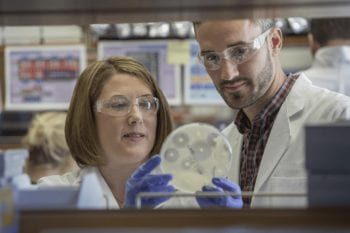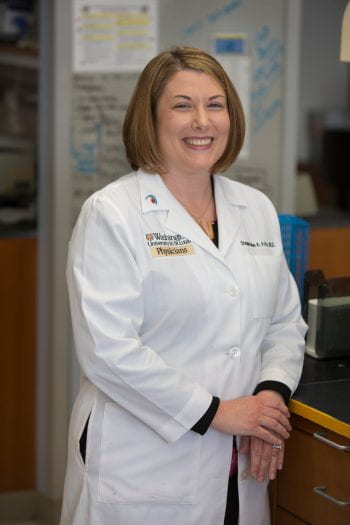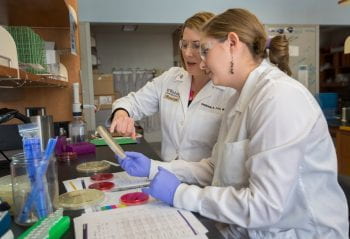Welcome to the Fritz lab!
Our research team studies the epidemiology, microbial virulence mechanisms and host defenses against community-associated methicillin-resistant staphylococcus aureus (CA-MRSA) colonization and disease.
CA-MRSA is an increasingly prevalent pathogen representing a major source of morbidity and mortality in our pediatric population in the St. Louis metropolitan area and in many cities across the U.S. While many CA-MRSA infections are skin abscesses, these pose significant inconvenience for patients and families through lost time from school and work, pain and anxiety of surgical procedures, and subsequent scarring. Patients with life-threatening CA-MRSA infections underscore the severity of this problem.



We are investigating the efficacy of potential decolonization measures, specifically improved household hygiene measures, mupirocin ointment, chlorhexidine antiseptic and dilute bleach water, in the eradication of CA-MRSA from the nose and skin of patients with skin and soft tissue infections. We are also investigating the effectiveness of decolonization measures when performed by an entire household versus measures directed at the index patient alone in pediatric patients presenting with a CA-MRSA skin or soft tissue infection. In addition, we are exploring the host immune response to staphylococcal toxins implicated in the pathogenesis of CA-MRSA in patients across a spectrum from CA-MRSA colonization without a history of disease to invasive CA-MRSA disease. We will then determine whether this immunologic response confers protection from subsequent CA-MRSA infections. Our goal is to develop novel approaches for the prevention of CA-MRSA infections.